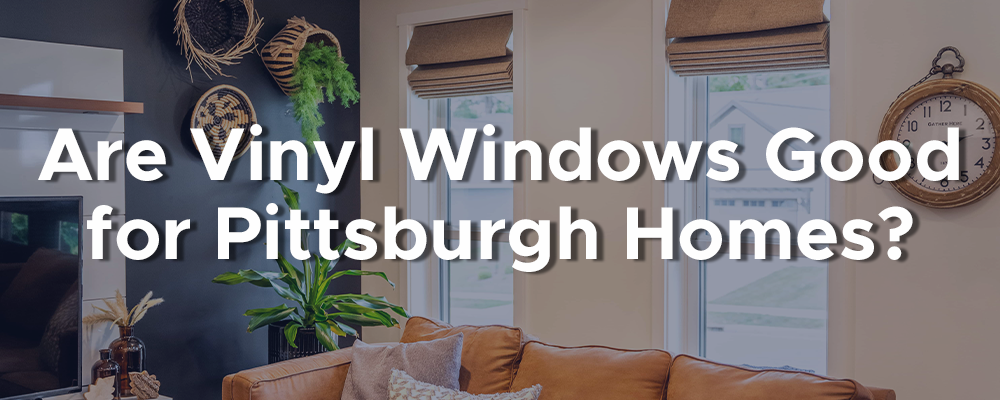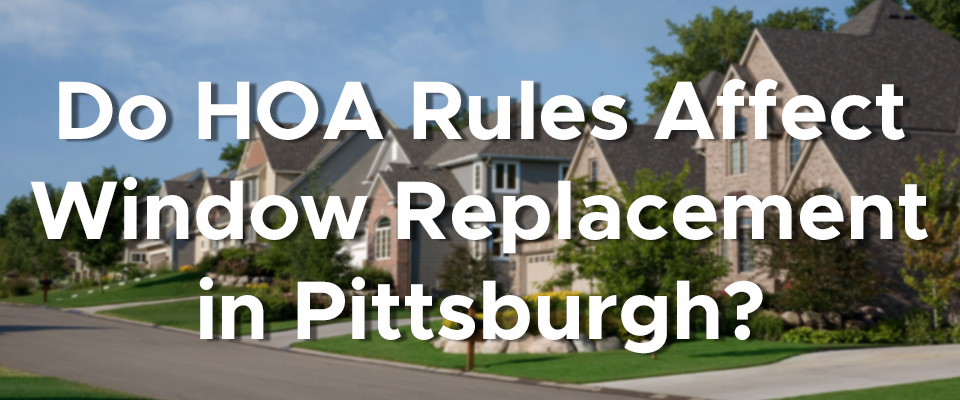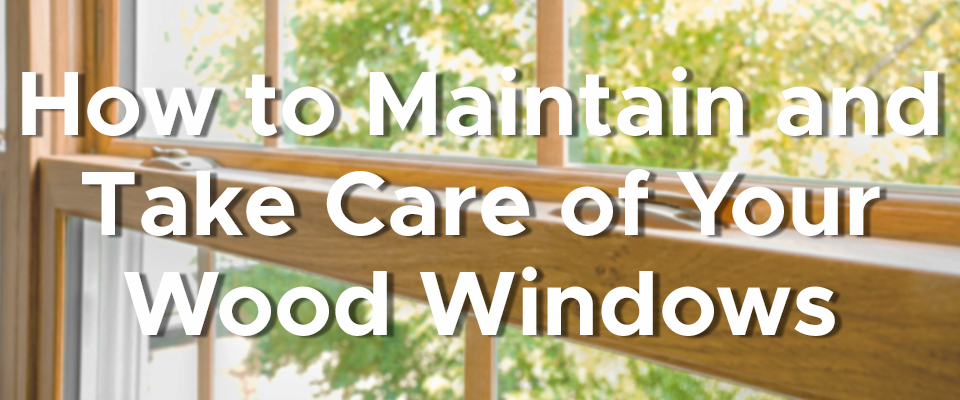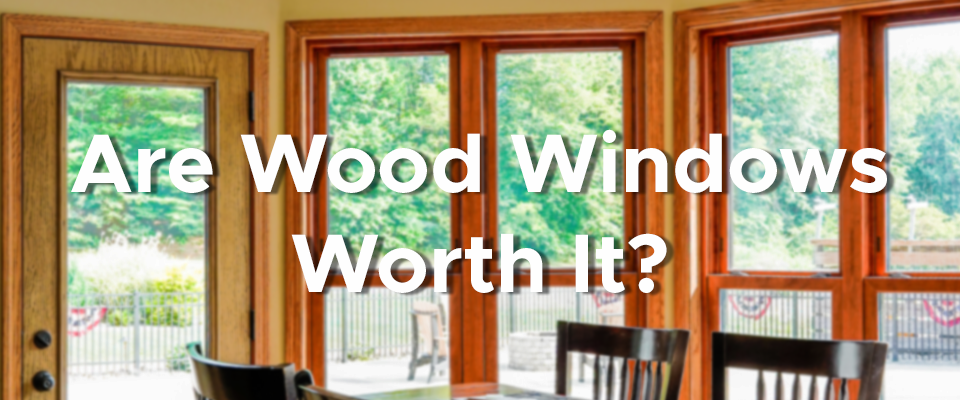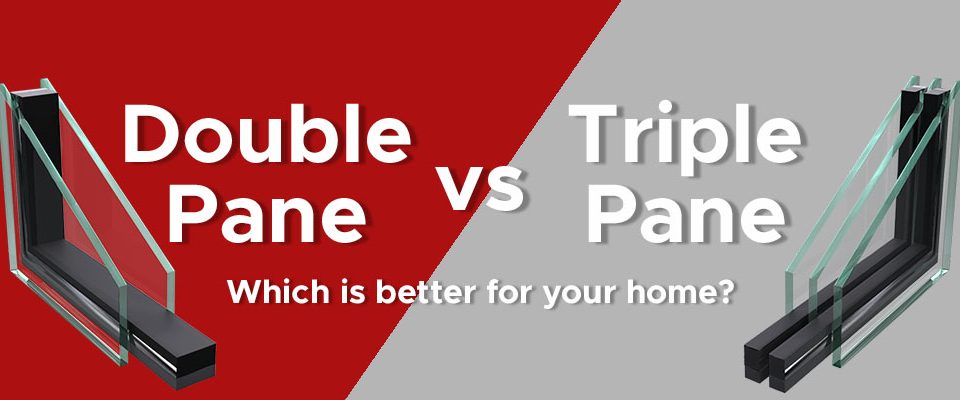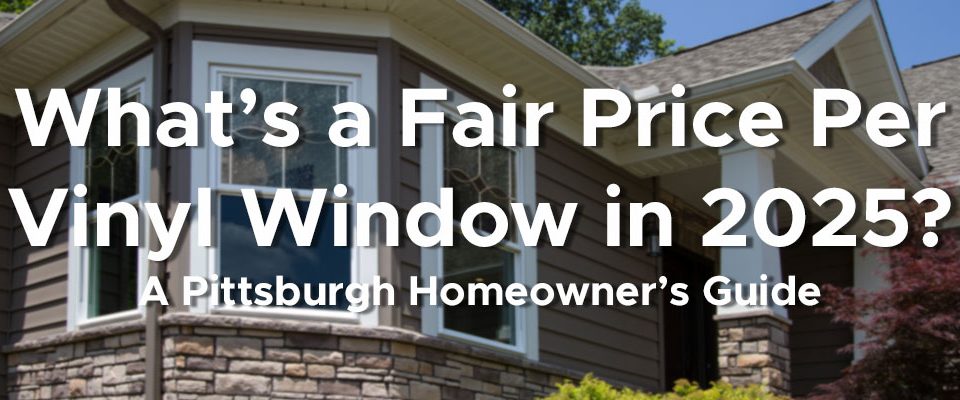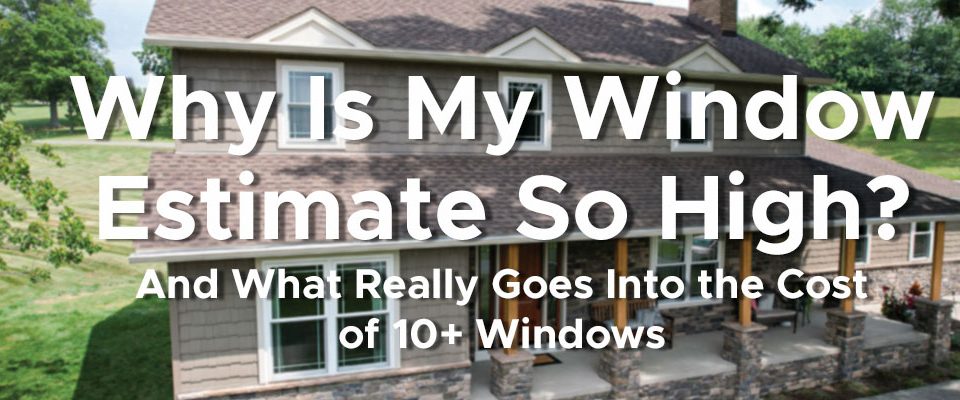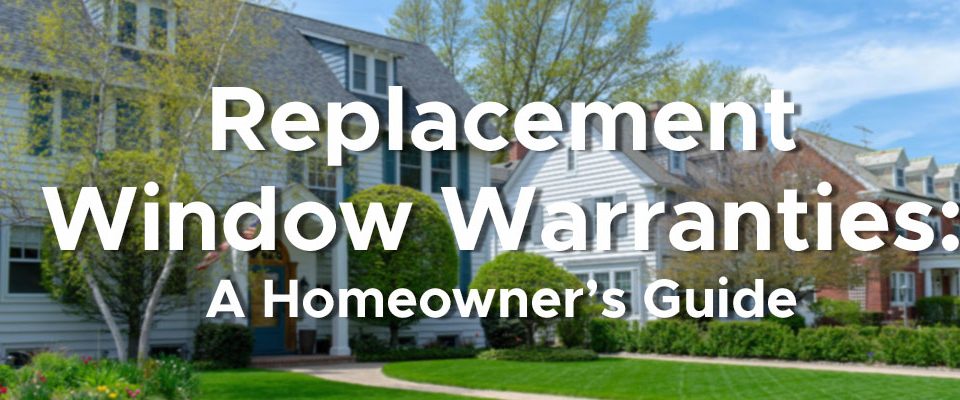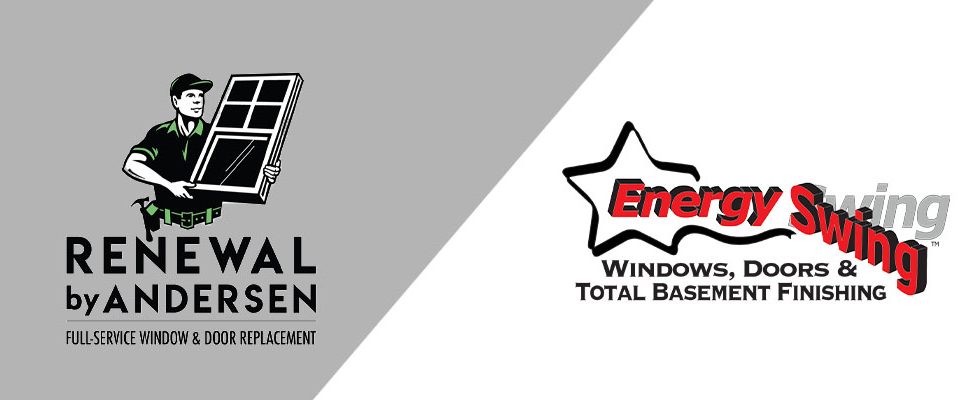Choosing windows for your Pittsburgh home can feel overwhelming. If you're shopping for replacement windows, you've probably heard conflicting opinions. Some swear by vinyl for its affordability and energy efficiency, while others insist fiberglass or wood is the better investment. So, how do you know which is best for your home?
At Energy Swing, we’ve helped Pittsburgh homeowners choose the best replacement windows for over 25 years. We’ve installed vinyl and wood windows, so we know firsthand the advantages and drawbacks.
By the end of this article, you’ll know whether vinyl windows are the best fit for your home’s needs, budget, and long-term value.
Vinyl Windows for Pittsburgh Homes Summary: Vinyl windows are a smart option for many Pittsburgh homes due to their affordability, energy efficiency, and moisture resistance, but only when you choose a high-quality product and expert installation. Keep reading to learn how to compare materials and make the right choice for your climate, budget, and home style.
What Are Vinyl Windows?
Vinyl windows are made from polyvinyl chloride (PVC), a durable synthetic plastic known for its resistance to moisture and decay. Vinyl does not rot or need refinishing, making it a low-maintenance choice. Because of these benefits, vinyl windows have become one of the most popular choices for replacement windows. It is projected that nearly 44% of window replacements will use vinyl from 2023-2027.
What Are the Advantages of Vinyl Windows?
- Cost-Effectiveness: Vinyl is usually more affordable than wood, fiberglass, or aluminum alternatives. They offer great value while providing long-term structural integrity and energy efficiency. The cost of fiberglass windows are $600-$3,000, wood ranges from $800-$3,500, and vinyl costs $300 - $1,500, respectively.
- Customization Options: Modern vinyl windows come in a variety of styles, colors, simulated wood finishes, and grid options. They are highly versatile for a variety of home aesthetics.
- Long-Term Performance: Vinyl can't absorb moisture and deteriorates over time. Unlike wood and other organic materials.
- Low Maintenance: Vinyl never needs to be painted or refinished, making upkeep minimal. You can wipe them down with a mild cleaner and warm water.
- Energy Efficiency: Vinyl is a good insulator, which means it slows down the transfer of cold and heat. Vinyl window frames are typically made with hollow chambers. This reduces heat transfer and improves energy efficiency.
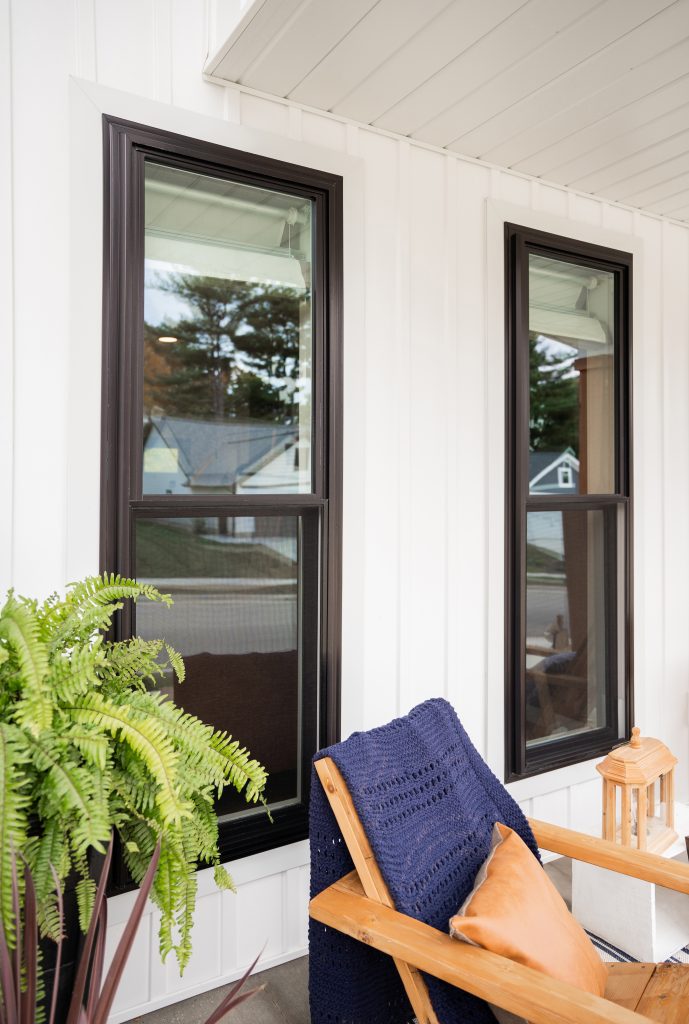
What Are the Downsides to Vinyl Windows?
Some homeowners avoid vinyl windows because they believe they look 'cheap' or won't last. However, high-quality vinyl windows are engineered with reinforced frames, premium PVC, and color-stable finishes that prevent warping and fading over time. The key is choosing a premium-grade product rather than a low-cost alternative.
- Potential Warping and Discoloration: Lower-quality vinyl windows may be prone to warping or discoloration over time. When using recycled vinyl, it will deteriorate over time. This is caused by heat in the sun and other natural elements. High-quality vinyl uses virgin PVC with stabilizers and reinforcements to prevent these issues.
- Structural Strength: Standard vinyl windows may not be as strong as fiberglass or aluminum. But, reinforced vinyl options exist for added durability. Premium vinyl windows also have thicker vinyl walls, which adds to the strength and performance of the window.
- Environmental Concerns: Vinyl can be recycled, but using reground PVC in some products can lead to brittleness and reduce longevity.
How Does Low-grade vs. Premium-grade Compare?
| Feature | Low-Grade Vinyl | Premium-Grade Vinyl |
|---|---|---|
| Material Quality | Recycled PVC, may become brittle or yellow over time |
Virgin PVC with UV stabilizers for long-term durability |
| Frame Strength | Thinner walls, minimal reinforcement | Reinforced frames with thick vinyl walls |
| Color Retention | Fades or discolors over time | Color-stable finishes resist UV damage |
| Energy Efficiency | Basic insulation, may allow drafts | Advanced insulation and tighter air seals |
| Warranty | Limited or short-term coverage | Comprehensive, long-term warranties |
How Do Vinyl Windows Compare to Other Types of Windows?
Vinyl vs. Wood:
Wood offers a classic aesthetic that can be refinished over time. A trade-off is that it requires more maintenance. Wood absorbs moisture, causing it to rot or swell. Routine maintenance is important to keep it protected.
Vinyl vs. Fiberglass:
Fiberglass is generally stronger and was once superior in color choices. However, modern vinyl windows now offer extensive color options and reinforced frame designs that exceed industry performance standards.
Vinyl vs. Aluminum:
Aluminum is stronger and ideal for high-wind environments. It is less energy efficient due to its high heat conductivity. Vinyl provides better insulation and is more cost-effective.
| Feature | Vinyl | Fiberglass |
|---|---|---|
| Cost | $300–$1,500 per window | $600–$3,000 per window |
| Maintenance | Low – no painting or refinishing needed | Low – finish can last decades |
| Strength & Durability | Good (varies by product quality) | Excellent – rigid and impact-resistant |
| Energy Efficiency | Good – hollow chambers provide insulation | Excellent – highly insulated material |
| Color Options | Improving – many modern choices | More extensive – baked-on finishes |
| Lifespan | 20–40 years (with premium product) | 30–50+ years |
Are Vinyl Windows Energy Efficient?
Yes, vinyl windows are energy efficient—and a great choice for Pittsburgh homeowners. Think of them like an insulated thermos: they help keep the heat in during winter and out during summer. Their efficiency comes from features like multi-pane glass, gas fills, and special coatings that reduce heat transfer.
- Insulated Glass Features: Many vinyl windows can incorporate multiple glass technologies to improve energy efficiency. Low-emissivity (Low-e) coatings fused to the glass surface reflect heat. A gas, such as Argon or Krypton, trapped between the pieces of glass reduces heat flow across the airspace. The number of panes of glass is also a choice when it comes to energy efficiency. Double-pane and triple-pane are both options that will give you well-insulated window glass.
- Air Infiltration Rating: Any operable window will have some infiltration under certain wind conditions. This measures how much air passes or “leaks” through. The lower the rating, the tighter the seal; which means a less drafty home. To receive ENERGY STAR rating, replacement windows must have less than or equal to .03 cubic feet per minute/sq foot of window area when subjected to a 25 MPH wind condition.
- Installation is Important: When considering energy efficiency, the product is important, but so is who installs it. Air leakage can occur where the frame meets the house or wall cavity. Insulation, seal, and flashing can cause a major disturbance in the energy efficiency of a vinyl window. You can have a great product that isn't installed properly, and it will leak air forever. That doesn't have anything to do with the product, it has to do with the installation.
- Energy Efficiency Ratings:
- U-Factor: Measures how much heat escapes from inside the home through the window. A lower U-factor indicates better insulation.
- Solar Heat Gain Coefficient (SHGC): Measures how much heat from sunlight enters through the window. Lower SHGC values help keep interiors cooler in summer.
How Long Do Vinyl Windows Last?
High-quality, vinyl windows can last between 20 and 50 years. The longevity will depend on the grade of materials and installation quality. Choosing windows with reinforced frames, virgin vinyl, and properly trained installers improves longevity.
What Should You Consider Before Buying Vinyl Windows?
- Installation Quality: A well-installed window performs better and lasts longer. Poor installation can lead to air leaks and reduced efficiency. An experienced installer can take a poor product and make it perform better than it should. But an inexperienced installer can take a great product and make it perform poorly.
- Customization Needs: Ensure the style, size, color, and grid pattern match your home’s architectural design. Not all double-hung window openings can be switched with casement-style windows due to the dimensions of the opening.
- Warranties: Look for warranties covering both product and installation. Some manufacturers may not cover installation-related failures. It's important to work with a contractor whose installation teams are trained on the products they are installing.
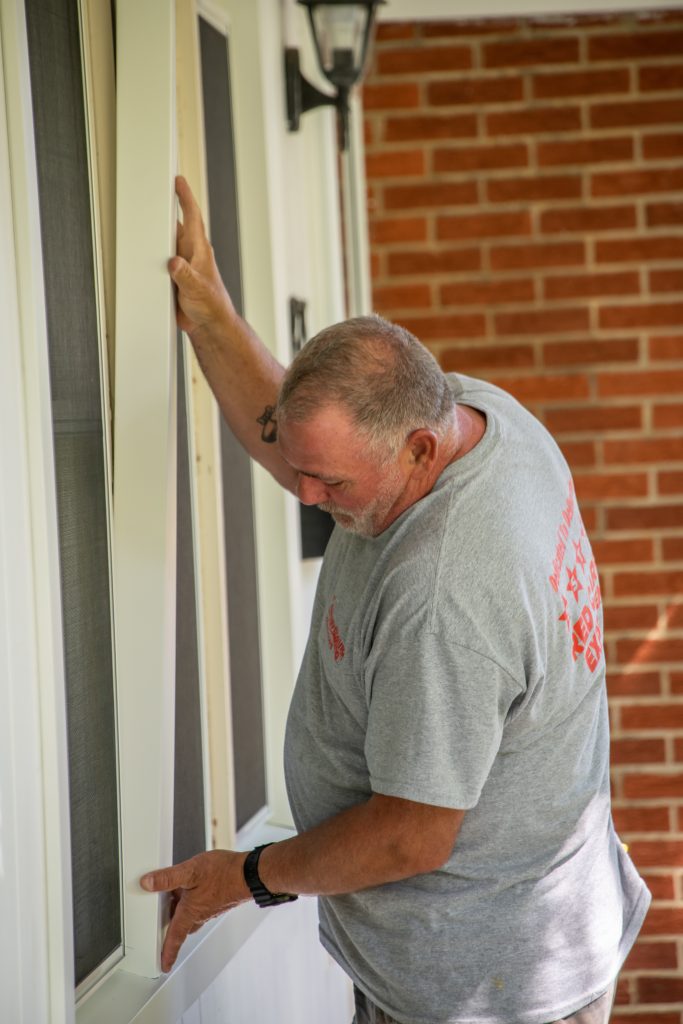
Are Vinyl Windows a Good Investment?
Vinyl windows provide a national average of 55-70% return on investment (ROI) when reselling a home. Additionally, their energy efficiency helps reduce heating and cooling costs. Which leads to long-term savings.
Specific Benefits for Pittsburgh Homeowners
Pittsburgh’s climate includes hot, humid summers and cold, snowy winters. This makes energy efficiency crucial. Vinyl windows help combat seasonal temperature extremes by maintaining consistent indoor comfort and reducing energy usage.
Additionally, they resist moisture-related damage, which is beneficial in Pittsburgh’s varying climates.
Should I Choose Vinyl for My Replacement Windows?
If you’re tired of drafty windows or struggling to decide on the best replacement option, vinyl windows offer a balance of affordability, efficiency, and durability. They need minimal maintenance and keep your home comfortable in Pittsburgh’s changing seasons.
Of course, choosing a premium product is only half the battle—working with an experienced contractor ensures your windows last for decades.
Before making a final decision, it’s important to compare costs. See how vinyl stacks up against other options with our Window Price Calculator and find the best fit for your home!

